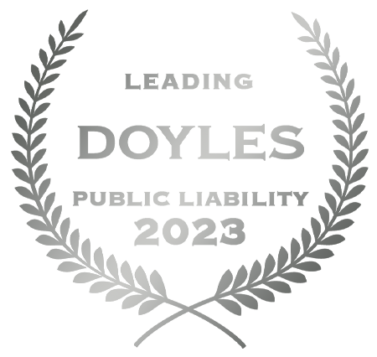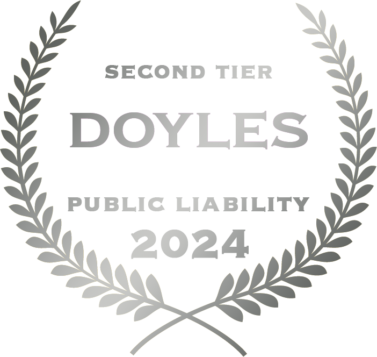
TPD Payouts – Your Complete Guide.
If you’ve had to stop working due to injury or illness, you might be able to claim a TPD payout. Most Australians have total and permanent disability (TPD) insurance included in their superannuation funds, although many are unaware of this and may not realise they can claim this lump sum.
After they discover they can claim a TPD payout from their superannuation funds, many Australians are even more surprised to learn they can make multiple claims at once. However, they often find the claim process is too difficult and give up out of frustration, potentially missing out on hundreds of thousands of dollars they’re entitled to.
This article includes tips and advice from our top TPD claim specialists based on thousands of successful claims and covers:
- How much you can claim as a TPD payout
- Examples of TPD payouts
- How to find out if you’re entitled to a TPD payout
- How to get your TPD payout sooner

TPD payouts – what you need to know.
We’ve helped thousands of people claim TPD payouts, and they generally come to us in one of the following four situations:
If you’re not sure what cover you have through your super or if you can make a claim, you can call 13 15 15 and we’ll find out for you. It’s a free service.
This is a common question, as people are often unsure about what TPD cover they had in place when they became injured or ill, or whether their injury or illness qualifies for a payout. We can give you free advice over the phone on this – just call 13 15 15, or read on to learn more.
It’s quite common for people in Australia to have multiple TPD policies as a result of changing jobs over the years. Read on to learn more about claiming multiple TPD payouts.
This is a very common situation. In fact, many people end up abandoning their claims when the process becomes too difficult. Read on to learn what to do if you’re having trouble with your claim.
How much is a TPD insurance payout?
TPD payout amounts typically range between $60,000 and $500,000, with many payouts being more than $200,000. The amount you can claim is called your ‘insured benefit amount’, and it will be clearly identified on your superannuation member statement.
But your TPD payout amount could be a lot higher if you have multiple policies. You may have multiple superannuation funds because if you’ve changed jobs over the years. So that means you may also have multiple TPD insurance policies attached to your super funds and you may be able to make multiple TPD claims.
TPD payout examples.
Here are three examples of TPD payouts we won on behalf of our clients.
Our client Mary was diagnosed with MS in 2015, and when she came to Law Partners, she had no idea she had any TPD insurance. But we sorted through years of her unopened super statements, and we discovered she had five valid TPD policies. We successfully claimed against all five policies for Mary, resulting in a total TPD payout amount of over $1 million. Needless to say, Mary was thrilled with this result, especially since she had no idea she had any TPD insurance at all.
This situation is more common than you might think. Like Mary, many people simply don’t know what policies they have, and don’t know where to start looking, especially if they’re coping with an illness or injury. If you need help, one of our TPD claims specialists can check your super funds for you and tell you how much you can claim. It’s a free service.
Four years after a serious car accident, 42-year-old labourer James suffered a broken back when he fell off a scaffold. An independent medical assessment determined that James would never be able to work as a labourer again.
James contacted Law Partners, and our solicitor advised him to send through his superannuation statements as there was a good chance he would be entitled to a lump sum TPD payout through his policy. James had heard of TPD cover before but was under the impression that because he had received a lump sum payout for a previous compensation claim he wasn’t eligible for a TPD claim. We assured James that this was not the case, and after examining his statements we discovered three separate superannuation policies with TPD cover that had been set up through different employers.
We successfully pursued all three claims for James which resulted in over $500,000 in lump sum compensation.
Sandra, 38, was involved in a serious car accident and suffered a compound fracture that eventually led to the amputation of her injured leg.
Sandra developed PTSD, which combined with her serious physical disability made it impossible for her to return to work as an admin assistant. She submitted her own TPD claims and despite adhering to the claims process, the insurer denied her claims on the basis that she failed to submit enough medical evidence supporting her psychological injury. They concluded that her physical disability wouldn’t prevent her from continuing to work in the field of administration.
Sandra contacted Law partners and we immediately sent her to be assessed by an independent psychologist, completed a thorough TPD application on her behalf, and wrote a submission to the super fund outlining why Sandra’s claim should be approved. In just a few months, we had managed to overturn the insurer’s decision and Sandra was rightfully awarded an $800,000 TPD payout on her two eligible superannuation policies.
Do I have TPD insurance in my super, and do I qualify for a TPD payout?
Your superannuation member statements will indicate what insurance cover is included in your super, and the insured benefit amount. If you’re not sure, we offer a free service to check for you.
However, the fact that you’ve stopped work, doesn’t mean you automatically qualify.
Different insurance policies have different definitions to qualify for a TPD payout. But as a general rule, if you’ve been unable to work due to an injury or illness for an extended period (usually more than three months) with no expectation to return to work, then you may be entitled to a superannuation disability payout.
The good news is we can help you find out what you can claim, and there’s no cost for this service. Simply call 13 15 15 and one of our TPD claim specialists can find out:
- If you have TPD insurance in your super
- If you qualify for a TPD payout
- Whether you can make multiple TPD claims
For more information, you can also read our Superannuation TPD Claim Guide.
Call 13 15 15 or chat to us now for free advice
Chat nowFind out how much you can claim.
Get startedIs it hard to get a TPD payout?
Although it should be easy to claim a TPD payout if you qualify, the reality is many people who are entitled to payouts give up out of frustration.* But don’t let that happen to you! Remember this is insurance you’ve paid for through your super, and it’s there to support you if you’ve had to stop working.
Your ability to claim depends on satisfying the criteria set out in your policy.
When claims are abandoned, it’s often because the person making the claim failed to provide all the required documents or didn’t complete them properly. This is understandable, especially for people dealing with an injury or illness and the stress of having to stop work. But it means the claim process becomes hard, and they give up out of frustration.
This is why so many people choose to have TPD specialists manage their claims for them. We have a team of TPD specialists based in Sydney and Melbourne who can take care of everything for you from start to finish, and make sure you receive your full entitlements. They may also uncover additional entitlements for you outside your TPD policy.
*According to ASIC Report REP 633: Holes in the safety net: A review of TPD insurance claims
How long does it take to get a TPD payout from a superannuation fund?
It usually takes 6-12 months for a TPD lump sum payout to be finalised. Some claims can drag on for much longer periods of time, but there are steps you can take to make sure your claim is processed as quickly as possible and get your disability payout sooner.
Insurance companies generally complete their assessments of TPD claims within six months. Some claims are finalised more quickly, but in more complicated claims the insurance company will often take more than six months to make a decision.
Once the insurance company has made their decision on a disability claim, the trustee of the superannuation fund will also do their own assessment of the claim. This usually takes one to two months.
TPD claim assessments are often delayed because the application isn’t completed correctly, or important information is left out. If you fail to submit a thorough application, it’s likely you’ll end up going through a lengthy process and responding to multiple requests for information from the insurer, and this can really drag on. This results in a lot of valid TPD claims being dropped because the process becomes too onerous for the applicants, who may already be struggling with injury or illness.*
*According to ASIC REPORT 633 – Holes in the safety net: A review of TPD insurance claims (page 50).
Here are three tips from our TPD specialists to get your TPD payout sooner:
1. Submit a thorough application.
Many people fail to supply all the evidence needed to support their TPD claims, so the insurer has to keep asking for more information and the process drags on. This is why many people who handle their own TPD claims end up failing to get the TPD payout they’re entitled to – they give up out of frustration.
2. Include a thorough written submission explaining why your TPD claim should be approved.
A well-written submission will clearly state how your situation satisfies the criteria in your TPD policy.
3. Follow up with the insurer to make sure they have everything they need.
Being proactive will help avoid unnecessary delays and frustration in the TPD claim process.
A Law Partners TPD claim specialist can help you submit a thorough claim, to give you the best chance of receiving the maximum TPD payout amount in the shortest possible time frame. We win over 99% of our claims, and we work on a no win no fee basis, so you only pay our fees after you receive your TPD payout.
Is TPD insurance paid in a lump sum?
Yes, if your TPD insurance claim is approved, the lump sum is usually paid into your superannuation account, giving you the choice to:
- Withdraw the entire balance
- Make a partial withdrawal and leave the balance in your super
- Leave the entire balance in your super
Once your TPD payout amount has been paid into your super account, it’s a good idea to get financial advice on your options and the tax implications that apply to your situation. You should do this before you withdraw any funds from your super account.
Is a TPD payout considered taxable income?
A TPD payout is not considered taxable income, however, if you withdraw part or all of your TPD payout amount from your super fund as a lump sum, you’ll need to pay “superannuation lump sum withdrawal tax”. The calculation is different for everyone, and if you have multiple super funds, the calculation will be different for each fund you make a withdrawal from.
How much tax will I pay on my TPD claim?
If you withdraw part or all of your TPD payout from your super fund:
- There’s no tax payable if you’re aged 60 or over.
- If you’re under 60, the amount of tax you’ll pay depends on your age and your “eligible service date” (this is usually the date you became a member of your superannuation fund).
- If you haven’t reached your preservation age, then a portion of the withdrawal amount will be tax-free, and the taxable portion will be taxed at 22%.
- If you have reached your preservation age (but are not yet aged 60), you can withdraw up to $225,000 tax-free.
- If you withdraw more than this amount, a portion of the further withdrawal amount will be tax-free, and the taxable portion will be taxed at 22%.
Call 13 15 15 or chat to us now for free advice
Chat nowFind out how much you can claim.
Get startedDoes a TPD payout affect Centrelink?
Many of our clients ask us about the relationship between a TPD payout and Centrelink benefits.
The first thing to understand is that your TPD payout will be paid directly into your superannuation account, so it won’t affect your Centrelink benefits. Your superannuation account balance is excluded from Centrelink means testing until you reach the Centrelink Age Pension age, which is between 65.5 and 67. If you’re receiving other benefits, such as child support payments, your TPD payout won’t affect those either.
However, if you withdraw any money from your TPD (or existing superannuation) balance, the withdrawal might impact your Centrelink entitlements. In other words, you only need to consider the link between your TPD payout and Centrelink benefits when you decide to access the money in your superannuation account.
There are different means tests that apply depending on which Centrelink benefits you receive, so it’s a good idea to get professional advice on your entitlements before you access your TPD benefit or superannuation account balance.
What should I do next?
Whether you’re ready to make a claim or just considering your options, there’s no cost to speak to a TPD lawyer at Law Partners. We’re happy to:
- Answer your questions on anything related to TPD claims
- Find out what valid TPD policies you have through your super funds
- Tell you if you’re entitled to a TPD payout
If you decide you’d like us to manage your claim for you, we’ll work on a no win, no fee basis, so you only need to pay us after you receive your lump sum payout.

Shane Butcher
Principal
An accredited specialist in personal injury law and spokesman for the Australian Lawyers Alliance, with the best part of 20 years’ experience in assisting injured Australians to receive everything they’re entitled to.
Related articles.
Do I have a case?
Our senior lawyers will assess your case for free.



















